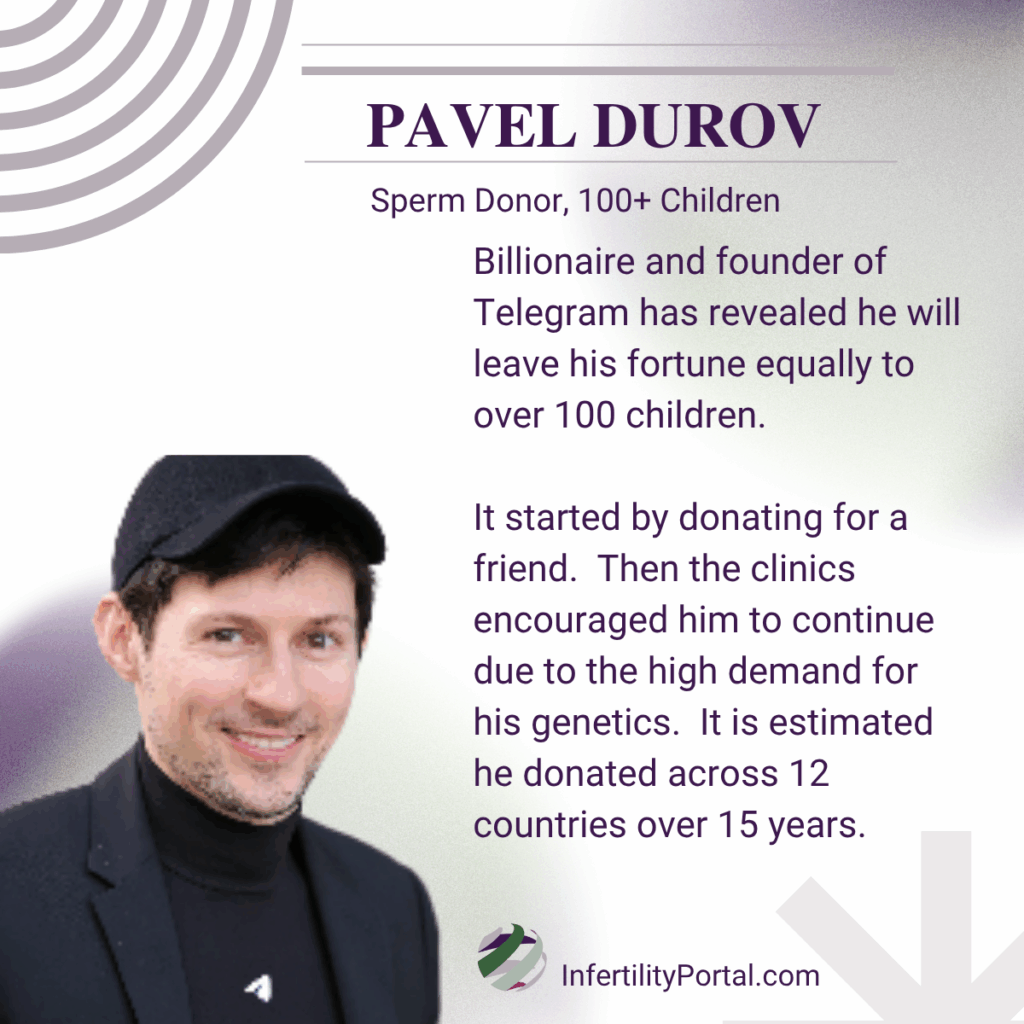Background on Durov
Pavel Durov, born on October 10, 1984, in Leningrad (now Saint Petersburg), co-founded VKontakte in 2006 before launching Telegram in 2013, which now boasts around 1 billion users. A staunch advocate for privacy, Durov left Russia in 2014 due to state pressure and now holds citizenship in the UAE and France.
In 2024, he was arrested in France in connection with Telegram’s encryption and moderation practices but was released on bail and is still subject to legal restrictions.
Each Child Gets an Equal Share
In a recent interview with Le Point, Durov announced he has six biological children with three partners and has fathered over 100 additional children via anonymous sperm donations, spanning some 12 countries over 15 years. He said he began donating “to help a friend” and continued when clinics told him his genetics were in demand.
Durov has stipulated that all his children—biological or donor-conceived will inherit equally, but inheritance will only become accessible 30 years after the will’s publication—i.e., June 19, 2055. His stated intent is to prevent entitlement, foster independence, and avoid inheritance disputes
Timeline
The timeline suggests Durov began donating around 2010 and continued for approximately 15 years, with multiple donations in clinics across 12 countries.
The Fallout
While this story grabs headlines, it also exposes a growing ethical concern: the lack of regulation in sperm donation and fertility practices.
As one donor-conceived adult put it:
“Knowing I have dozens of siblings out there makes me feel like a product, not a person. I struggle to understand where I fit in the world.”
We all have a right to be individuals. Every person deserves the chance to grow up with a clear sense of identity. Learning later in life that you have over 100 genetic siblings, many of whom you will never meet, can cause lasting emotional harm and a loss of individuality. This is why clear limits and ethical guidelines around donor conception are urgently needed. Without regulation, we risk turning human lives into numbers and overlooking the real psychological impact on donor-conceived people.
Sperm banks and IVF clinics must step up and self-regulate, setting limits and ensuring transparency. If they don’t, countries will need to intervene to protect the privacy, individuality, and emotional health of donor-conceived people.


